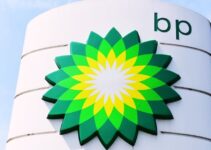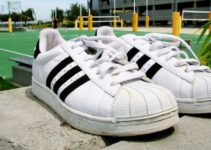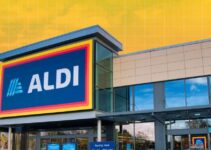Unilever PLC is a consumer goods manufacturing British multinational company. The consumer goods manufacturing company started its business in 1929. Today, we’ll discuss the value chain analysis of Unilever supply chain analysis; primary and supporting activities in the process of value chain analysis Example Company. They are inbound and outbound logistics, operations, marketing, and customer service; infrastructure, HRM, technology, and procurement as an application of the value chain analysis process.
Geographical Distribution of Suppliers of Unilever
- Asia 33%
- Europe 26%
- Middle East, Belarus, Russia, and Ukraine 11%
- North American 7%
- South and Central America 18%
- Africa 4%
Supply Chain Spending Areas of Unilever
- Raw Material 32%
- Marketing 30%
- Packaging 15%
- Logistics and operations 8%
- Contract manufacturers 11%
- MRO 4%
The Value chain analysis of Unilever supply chain analysis would analyze the primary and supporting activities in the process of value chain analysis. They’re inbound and outbound logistics, operations, marketing, and services; infrastructure, HRM, technology, and procurement. Here’s the supply chain analysis of Unilever value chain analysis company example as follows;
Value Chain Analysis of Unilever
Let’s discuss the primary and supporting activities involved in the process of value chain analysis of Unilever supply chain analysis. It is an application of value chain analysis based on Porter’s model; some of the key elements and components of value chain analysis are as follows;
Primary Activities of Unilever
The primary activities are directly involved in the production of products and goods and adding value to the consumer goods manufacturing company. Some of the five main primary activities in the value chain analysis of Unilever supply chain analysis are as follows;
Inbound Logistics of Unilever
I-Suppliers Network
Unilever has established a very large suppliers network comprising approximately 56300 suppliers in 150 countries across the world. They’re in geographical regions like Europe, Asia, North and South America, the Middle East, Russia, Ukraine, and Africa. According to an estimate, the consumer goods brand spends approximately 32.5 billion Euros on the supplier’s network.
II-Connected Supply Chain
Unilever has established a very large and connected supply chain network and it helps the consumer good brand to smoothly perform its various manufacturing and production operations. It comprises of following areas;
- Partnering up with the suppliers with a specific purpose and objective
- Digitally transforming the suppliers, adding value, and developing sustainability
- Future for fit talent by investing in the suppliers
- Promoting environmental sustainability and having a positive impact on the plant
- Agile and resilient supplier network
Outbound Logistics of Unilever
I-Transportation
Unilever partners up and collaborates with various transportation and 3rd party logistics service-providing companies for the distribution of products and goods. They move raw supplies, materials, and components from the authorized suppliers to the production and manufacturing factories; warehouses, and distribution centers and then to the retail stores.
II-Sustainable Transportation
Unilever is a highly responsible and sustainable organization and the company has made a strong commitment to the environment and society. In order to decrease the carbon footprint, the consumer goods brand prefers to employ sustainable and eco-friendly transportation channels.
Operations of Unilever
I-Production and Manufacturing Factories
Unilever has approximately 65 production and manufacturing factories in various countries across the globe. The worldwide network of production and manufacturing facilities would help the company keep up with the growing demand of the customer market and amplify its network.
II-Distribution Centers
Unilever has a network of roundabout 100 distribution centers and warehouses in various countries across the globe. The company has built its warehouses and distribution centers specifically in those regions nearing to the retail stores and customer market. It helps the company to increase the delivery timing, reduces the distribution and transportation costs, and promotes environmental sustainability.
Marketing & Sales of Unilever
Unilever runs various types of marketing and advertisement campaigns for the promotion of its products and brands. The consumer goods brand employs various media channels to approach the end consumers and sell its products to the customers.
Services of Unilever
Unilever offers a wide range of products and services to the end consumers. The service portfolio helps the consumer goods brand to improve the customer satisfaction level and promote brand loyalty. However, some of the main products and services of the brand are as follows;
- Healthcare
- Hygiene
- Personal care
- Beverages
- Condiments
- Cleaning agents
- Breakfast cereals
- Bottled water
- Beauty products
Supporting Activities of Unilever
Supporting activities are indirectly involved in the production of products and goods and adding value to the consumer goods manufacturing company. Some of the main supporting activities in the value chain analysis of Unilever supply chain analysis are as follows;
Infrastructure of Unilever
Unilever has established a very large infrastructure of production and manufacturing facilities, suppliers network, distribution channels, and retail stores network. Well-developed infrastructure of the consumer goods brand helps the company to smoothly perform its various production and manufacturing operations and timely deliver the finished goods to the end consumers.
HRM of Unilever
Unilever has employed approximately 127000 employees to manage its global operations. The human resource management department of the company plays a key role in building a large database of employees, carefully recruiting and selecting the right employees, conducting training programs, and offering equal employment opportunities to all regardless of any differences.
Technological Development of Unilever
Unilever invests a significant amount of capital resources in research and technological development. It allows the consumer good brand to develop efficient methods of production, source sustainable materials and supplies, automation technology, AI, and machine learning. However, it helps the company to efficiently perform its various operations and timely deliver the finished goods to the end consumers.
Procurement of Unilever
Unilever is highly careful and cautious about ethical sourcing and procurement of raw materials and supplies. The company has set up a strict code of conduct for suppliers and vendors to ensure their compliance with human rights standards and regulatory requirements of the country.
Conclusion: Unilever Value Chain Analysis Example Company | Application of Value Chain Analysis Process |Process of Value Chain Analysis
After an in-depth study of the value chain analysis of Unilever; we have realized that Unilever is the world’s leading retail consumer goods manufacturing brand. If you are learning about the Unilever value chain analysis example company; then you should keep in mind the abovementioned primary and supporting activities. They’re inbound and outbound logistics; operations, marketing and sales, and services; infrastructure, procurement, HRM, and technological development as an application of the value chain analysis process.
Ahsan is an accomplished researcher and has a deep insight in worldly life affairs. He goes Live 3 days a week on various social media platforms. Other than research writing, he’s a very interesting person.


